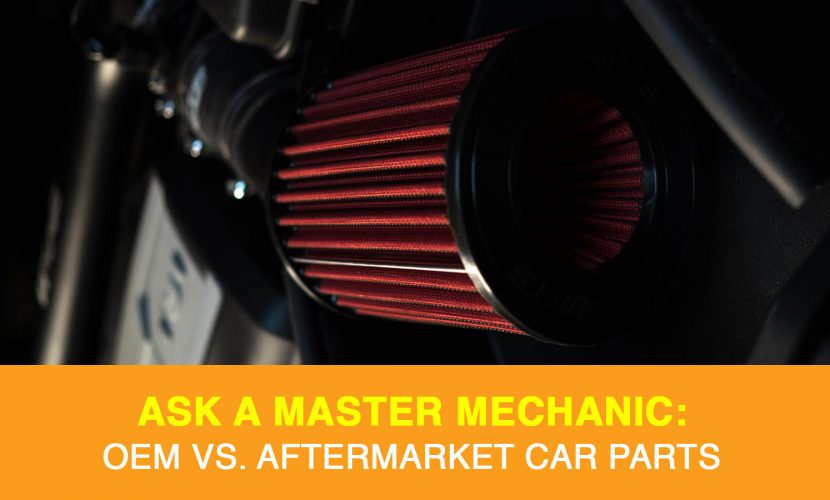
Ask A Master Mechanic: Oem Vs. Aftermarket Car Parts
Bringing your car to a trusted shop, like Master Mechanic, means you can tailor your service to best suit your driving habits and budget. Much of that has to do with whether you choose to get Original Equipment Manufacturer (OEM) parts or Aftermarket parts. For any savvy shopper, this naturally leads to a few questions:
What is the difference between OEM and aftermarket parts?
Is one “better” than the other?
Does choosing aftermarket parts void your car’s warranty?
We caught up with a Master Mechanic to find the answer to these important questions. Below, we’ll take a look at the pros and cons for OEM and aftermarket parts so you can make an educated decision.
Aftermarket Parts
Before we get into details, some readers might be wondering what exactly an aftermarket part is. Simply put, an aftermarket car part is a part that is not made by the manufacturer of the vehicle.
Aftermarket parts can be a favoured choice. This is because they are typically readily available since many different manufacturers interchangeable parts. They’re also usually cheaper than OEM parts without sacrificing quality; usually. Unlike OEM parts, however, aftermarket parts are not all regulated or standardized. If you’re going somewhere other than Master Mechanic, it’s important to request high-quality aftermarket parts, otherwise, you could damage your vehicle.
High-quality aftermarket parts are as good as OEM parts, or in some cases, can perform better. You really do get what you pay for, and the higher the cost, the better the build or materials. There are hundreds of manufacturers to choose from, so be sure to ask your mechanic about your options.
When considering your options, also ask about the warranty offered by the manufacturer. While any reputable aftermarket manufacturer will provide a warranty for their products, not all do.
OEM Parts
OEM parts are just simply car parts that are manufactured by your vehicle’s manufacturer. Simply put, these are the exact parts that came installed in your car when you bought it. With OEM parts, you don’t have to do any research, because there’s only one option, and your vehicle manufacturer has completed the quality checks for you. In fact, all OEM part manufacturers have to adhere to industry quality standards, so you don’t have to worry about durability.
When Should You Choose OEM Parts?
We recommend OEM parts if you are repairing your car after a collision–especially if you’re not at fault. In these instances, you’re entitled to get your car returned to the same condition it was in before the collision.
In other cases, check with your insurance company. Some insurance companies prefer only OEM parts for quality assurance (since not all drivers/mechanics are diligent), while others prefer aftermarket parts for the cost.
Which is Best?
As we stated, not all aftermarket parts are created for quality—but all OEM parts are. That doesn’t mean they’re the better option. If you’re willing to do the research–or if you have a trusted Master Mechanic in your corner–then you do not need to worry about the quality of aftermarket parts used. We’ll always explain your options but will never suggest a part that doesn’t meet quality standards.
If you have any questions about parts, or want a quote on aftermarket parts, don’t hesitate to contact your local Master Mechanic. We’re always here to help!

